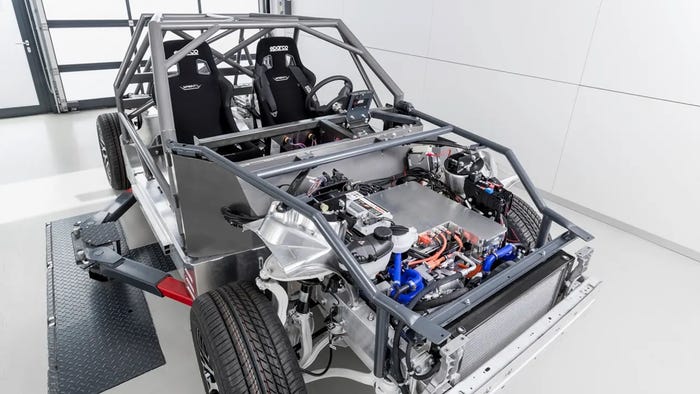Daimler to Produce Automatic Transmissions in Romania
Expanding transmission assembly in Romania is good news for Daimler’s 13-month-old plant in neighboring Hungary, which produces Mercedes B-Class cars and the new CLA. Sourcing from Romania shortens logistics distance.

VIENNA – Daimler expands its Mercedes-Benz Cars powertrain manufacturing network.
The auto maker will invest more than €280 million ($364.4 million) for the production of a new generation of automatic transmissions in Romania. Overall, Daimler plans investments of more than €300 million ($390.5 million).
“The expansion of our production network to include an additional location for transmission assembly is designed to perfectly complement our existing capacities,” Andreas Renschler, who oversees manufacturing and purchasing for Mercedes cars and vans, says in a news release.
“Our goal here is to serve the high customer demand with even greater flexibility in the future.”
Additional capacities for transmission assembly are planned for the Romanian Daimler subsidiary Star Transmission, which operates sites in Cugir and Sebes, both in the western half of Romania. The new project will be located at the Star Transmission site in Sebes.
Star Transmission was founded as a joint venture with the Romanian government in 2001. Until now, Daimler owned 78% of the joint venture while the Romanian Ministry of Economy owned the remaining 22%.
However, Daimler and the government agreed to the auto maker’s takeover of the ministry’s shares.
Star Transmission and the roughly 800 employees at the Cugir location produce components for current Mercedes car engines and transmissions as well as older generations of transmissions for the spare-parts business.
The auto maker has decided to start production of the 5-speed automatic transmission from the middle of this year at the new location in Sebes until its discontinuation.
Starting in 2014, the current generation of front-drive dual-clutch transmissions also will be assembled there. This will provide additional assembly capacities to complement manufacturing at Stuttgart, where assemblies have been concentrated to date.
Subject to the Romanian government’s support for expansion of production capacities, a new generation of automatic transmissions for cars will be built in the new manufacturing network involving the locations in Stuttgart (full production including assembly) and Sebes (assembly only) starting in 2016.
“Star Transmission has been a reliable partner of our German powertrain locations for over 10 years,” says Peter Schabert, head of powertrain production and the Mercedes-Benz Untertürkheim plant.
“According to the current planning status and based on our excellent experience with Star Transmission, the preferred option for providing the additionally required assembly capacities in a flexible manner is to expand the activities there.”
Parts for transmission assembly in Sebes will be supplied from the German production location.
“Additional capacities will be built up in view of the high capacity utilization, as well as the lack of space for further expansion of transmission production in Stuttgart,” Daimler says.
The Stuttgart plant will remain the heart of transmission output for Mercedes cars and will act as the center of competence in this production network.
The decision to locate additional transmission assembly in Romania is good news for Daimler’s new plant in neighboring Hungary, which produces the Mercedes B-Class and new CLA. For the Hungarian factory, inaugurated in March 2012, transmission sourcing from Romania means shorter logistics distance.
Three global auto makers currently manufacture powertrain components in Romania. In addition to Daimler, Renault subsidiary Dacia is producing engines and transmissions at its plant in Mioveni not only for Dacia cars, but also for Renault and Nissan vehicles. Ford is building gasoline engines at its facility in Craiova.
About the Author
You May Also Like



